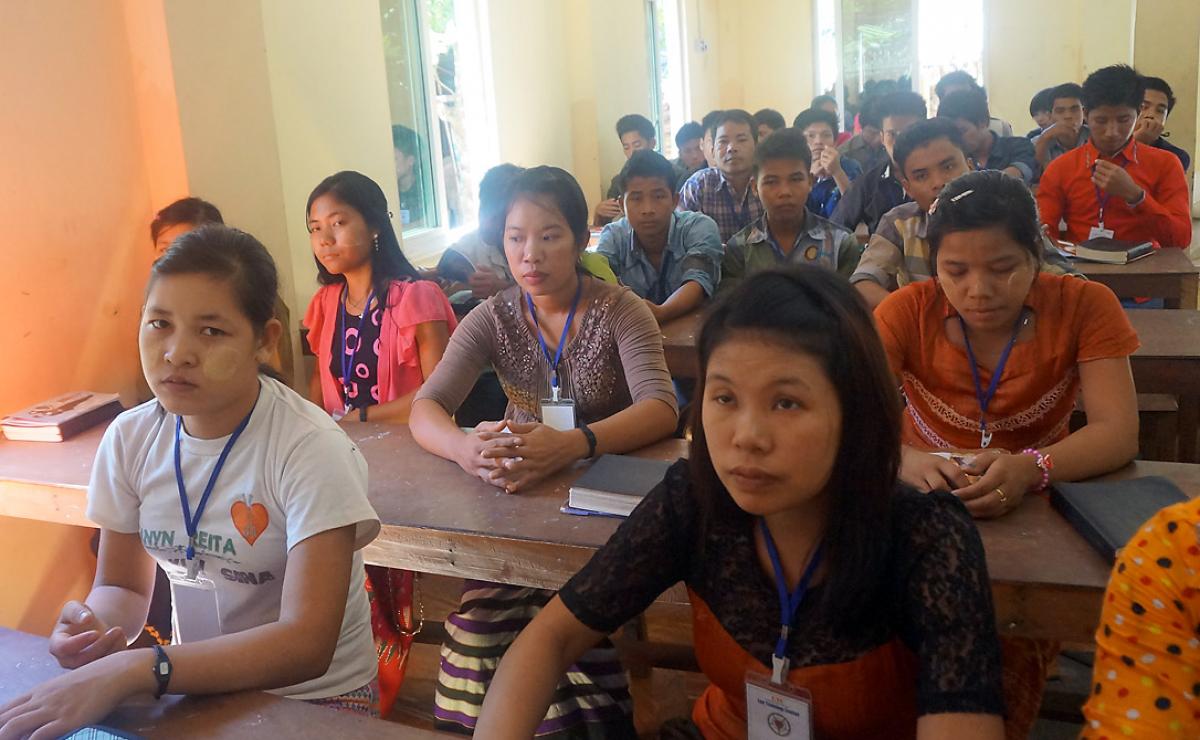The joys and challenges of thousands across the LWF

LWF committee to discuss funding for member church projects
(LWI) – The joys and challenges faced by Lutheran churches across the global communion will come to the fore at a Lutheran World Federation (LWF) meeting to discuss funding for church diaconal projects next week.
The LWF has invited church representatives from Honduras, Hungary, Myanmar and Zimbabwe to the 25-27 April meeting of the Sub-Committee for Mission and Development in Hanover, Germany. They will share how LWF-supported projects transform not only churches but the communities they serve.
Rev. James San Aung, mission director of the Myanmar Lutheran Church (MLC), will present its training program for lay leaders in a church that many doubted would last. “We have encountered several obstacles and problems and many people felt we would not survive for more than three years,” he remarked.
When the MLC was officially established as a religious community in Myanmar in March 1998, it had only five members, including its sole ordained pastor and leader Rev. Andrew Mang Lone. A military junta still governed the country, which was experiencing civil conflicts and human rights violations.
By 2010, the same year it joined LWF, the MLC church had 2,150 members including six ordained pastors and 14 evangelists. Today, the Lutheran church has 3,127 members in 14 congregations in the districts of Yangon, Paletwa and Miza. Its leader, Bishop Dr Andrew Mang Lone works alongside 17 other pastors and 25 evangelists.
A holistic approach
At the Hanover meeting, Aung will elaborate on MLC’s request for support to train 27 lay leaders in Myanmar and India for work in village congregations in 2017-2019. The extra funding will sustain the eight-month Bible study training program started in 2014 to enhance skills of evangelists without formal theological education. As the church’s work is structured around a holistic approach, the trainees also learn modern agricultural methods to help small-scale farmers increase yields and improve household incomes.
Ilona Dorji, LWF secretary for Project Coordination and Monitoring, underlines the fact that this is “much-needed support for a young church with many small congregations in the villages.” Sharing impressions from her recent visits, she adds, “The villagers cannot afford to engage full time pastors so they rely on lay leaders. Many young people wish to study theology and mission but their parents cannot afford the cost for studies.”
Challenges
Rev. Dr Philip Lok, a former bishop of the Lutheran Church in Malaysia and Singapore, who is the new LWF area secretary for Asia, has been involved with the MLC since its inception. “I look back with great joy and gratitude at the ministry of this church in a challenging social, economic and political atmosphere,” he says. Lok presided at the ordination of several MLC pastors and evangelists between 2007 and 2011, and installed its first bishop in 2013.
The Ministry of Religious Affairs regulates the activities of faith groups in the country of 51 million people, 80 percent of whom are Buddhist. Restrictions against conversion into Islam or Christianity “create some fear” Aung says.
Christians, including the 30,000 members of all four LWF member churches in the country, represent around seven percent of the population. The LWF World Service country program there also provides development and humanitarian assistance through community-based organizations.
EUR 2.2 million for 23 church projects around the world
The Hanover meeting will discuss 23 project applications from Africa, Asia, Central Eastern Europe and Latin America and the Caribbean, with a total budget of more than EUR 2.2 million for the period 2017 to 2019.
The SMD is made up of seven members of the LWF Council, and representatives of church-related organizations, and LWF staff participate in its annual sessions. The Council will receive the committee’s recommendations this June in Wittenberg, Germany.

